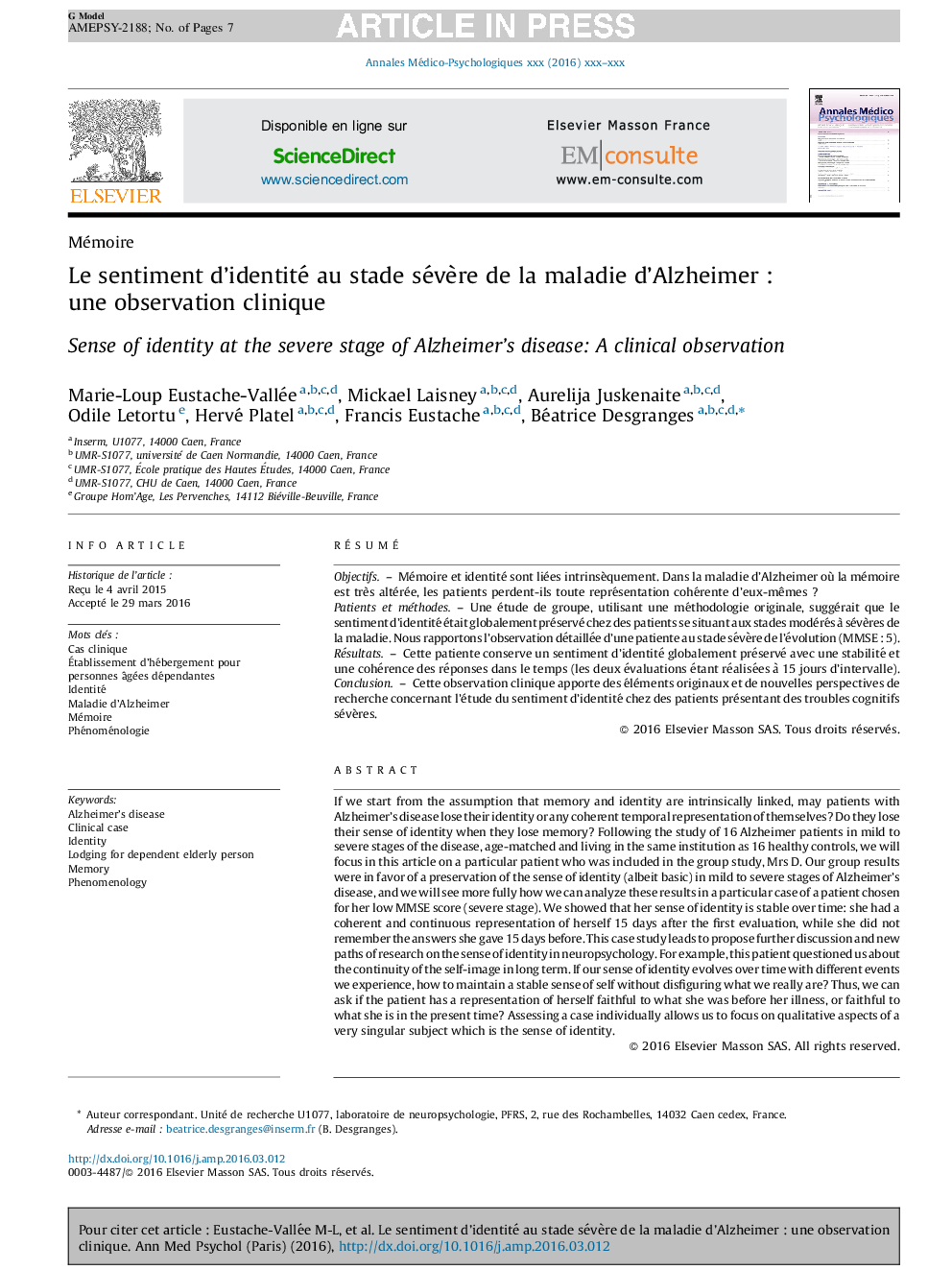| Article ID | Journal | Published Year | Pages | File Type |
|---|---|---|---|---|
| 6785525 | Annales Mdico-psychologiques, revue psychiatrique | 2017 | 7 Pages |
Abstract
If we start from the assumption that memory and identity are intrinsically linked, may patients with Alzheimer's disease lose their identity or any coherent temporal representation of themselves? Do they lose their sense of identity when they lose memory? Following the study of 16Â Alzheimer patients in mild to severe stages of the disease, age-matched and living in the same institution as 16Â healthy controls, we will focus in this article on a particular patient who was included in the group study, Mrs D. Our group results were in favor of a preservation of the sense of identity (albeit basic) in mild to severe stages of Alzheimer's disease, and we will see more fully how we can analyze these results in a particular case of a patient chosen for her low MMSE score (severe stage). We showed that her sense of identity is stable over time: she had a coherent and continuous representation of herself 15Â days after the first evaluation, while she did not remember the answers she gave 15Â days before. This case study leads to propose further discussion and new paths of research on the sense of identity in neuropsychology. For example, this patient questioned us about the continuity of the self-image in long term. If our sense of identity evolves over time with different events we experience, how to maintain a stable sense of self without disfiguring what we really are? Thus, we can ask if the patient has a representation of herself faithful to what she was before her illness, or faithful to what she is in the present time? Assessing a case individually allows us to focus on qualitative aspects of a very singular subject which is the sense of identity.
Keywords
Related Topics
Health Sciences
Medicine and Dentistry
Psychiatry and Mental Health
Authors
Marie-Loup Eustache-Vallée, Mickael Laisney, Aurelija Juskenaite, Odile Letortu, Hervé Platel, Francis Eustache, Béatrice Desgranges,
